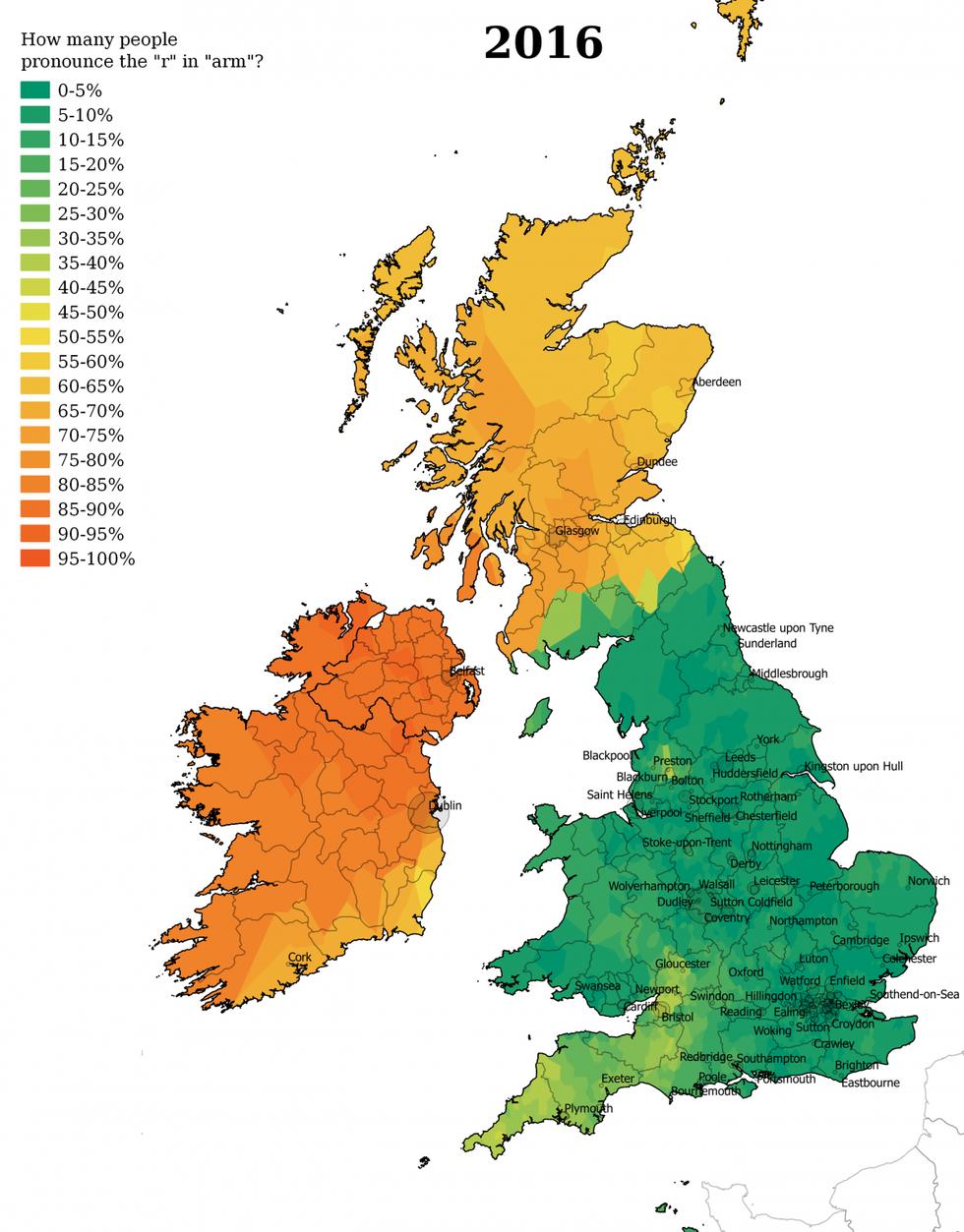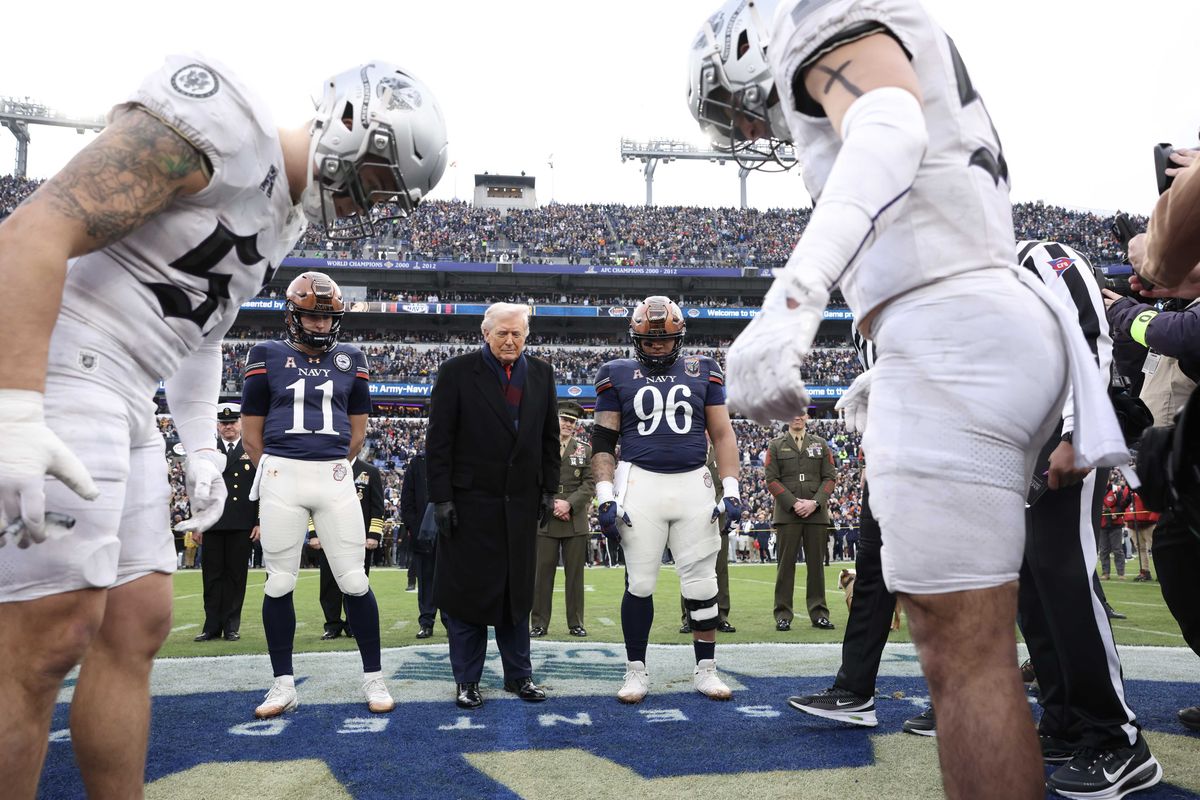News
Bridie Pearson-Jones
Apr 22, 2017
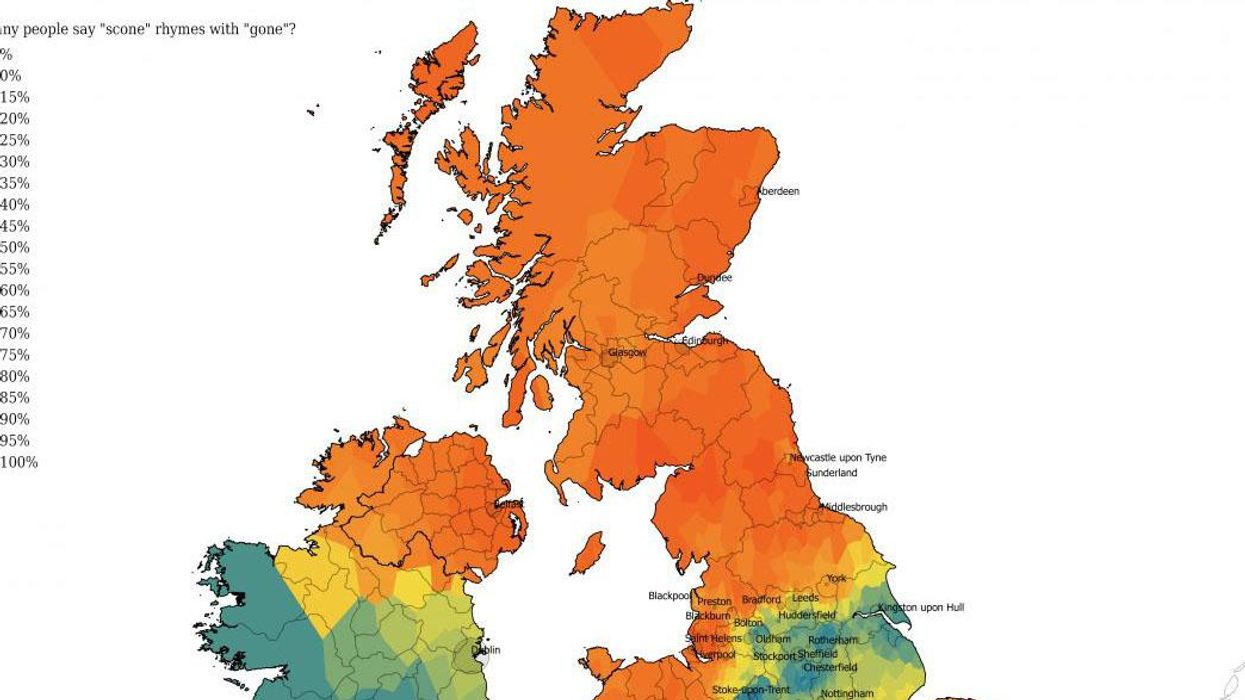
Picture:
Cambridge Department of Theoretical and Applied Linguistics
Britain is perhaps best known for being a tiny island with a huge number of accents - an anomaly to linguists that people growing up only a few miles apart can have different dialects.
However, according to new according to new research from Cambridge - we're all losing our local tongues and heading towards 'received pronunciation' or the 'South East England' accent.
This means it's going to be easier communicate with the more "difficult to understand" accents such as Geordie and Glasweigan - but could mean regions of the UK are losing their character.
A team of researchers at the Cambridge Department of Theoretical and Applied Linguistics used an app called "English Dialects" which asked people to choose a "correct" pronunciation of dozens of commonly used English words - and then useas that to calculate where you grew up.
The team used the 30,000 responses to create these maps which show where you live depending on how you think different words are said.
How you pronounce "scone" is a debate that's ruled whether or not your posh since the dawn of time. Those who pronounce it rhyming with "gone" tend to be from the North and Scotland, and those who pronounce it to rhyme with "bone" tend to be from the South - or Sheffield.
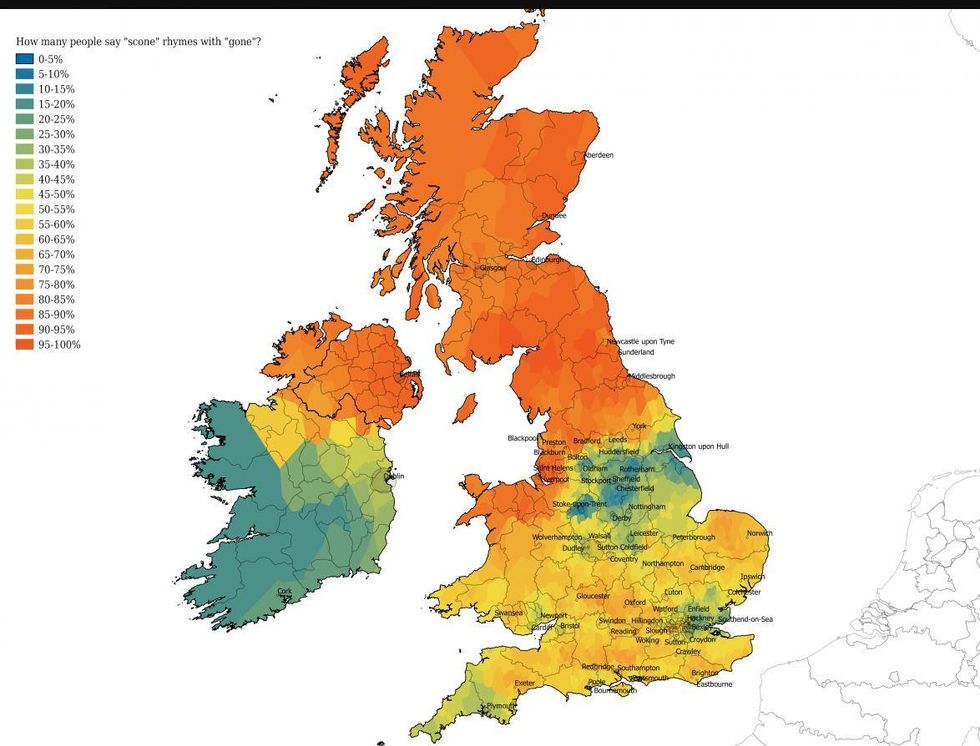
The Peak district, near Liverpool, is particularly split on the matter.
The word "three" use to divide the country - in 1950 the majority of the country pronounced it "three" now most people say "free".
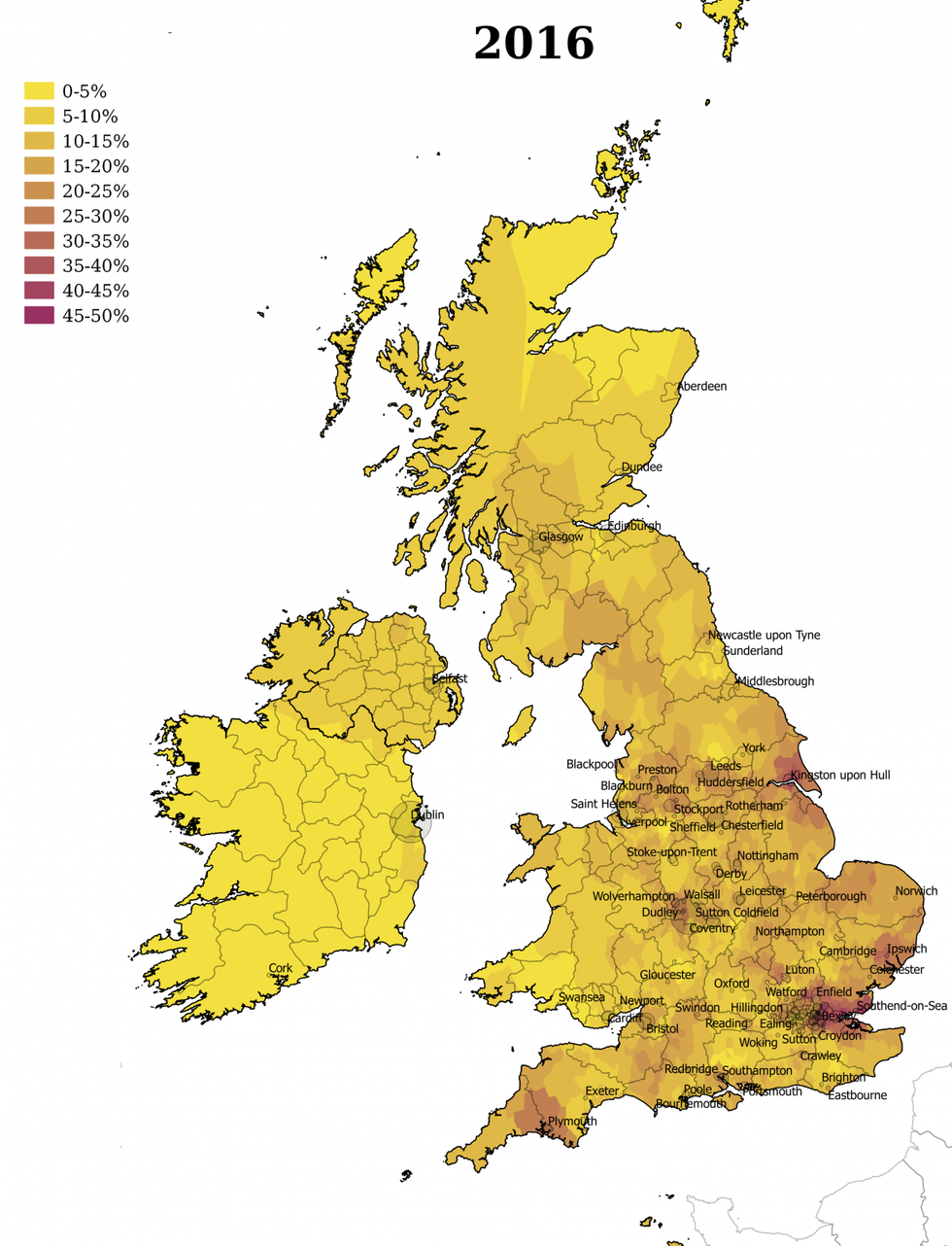
Sixty years ago only North Londoners said "free".
Tam Blaxter, part of the research team told Business Insider that the influence of London and the South East has spread southern pronunciations over the rest of the country — which is why a large minority of people in Hull and Plymouth now say "free" even though their parents grew up saying "three." Baxter also said that the pronunciation of 'scone' has little to do with your socioeconomic status.
The pronunciations of 'splinter,' 'arm,' 'butter,' 'new,' and 'last' have also varied a lot since the 1950s.
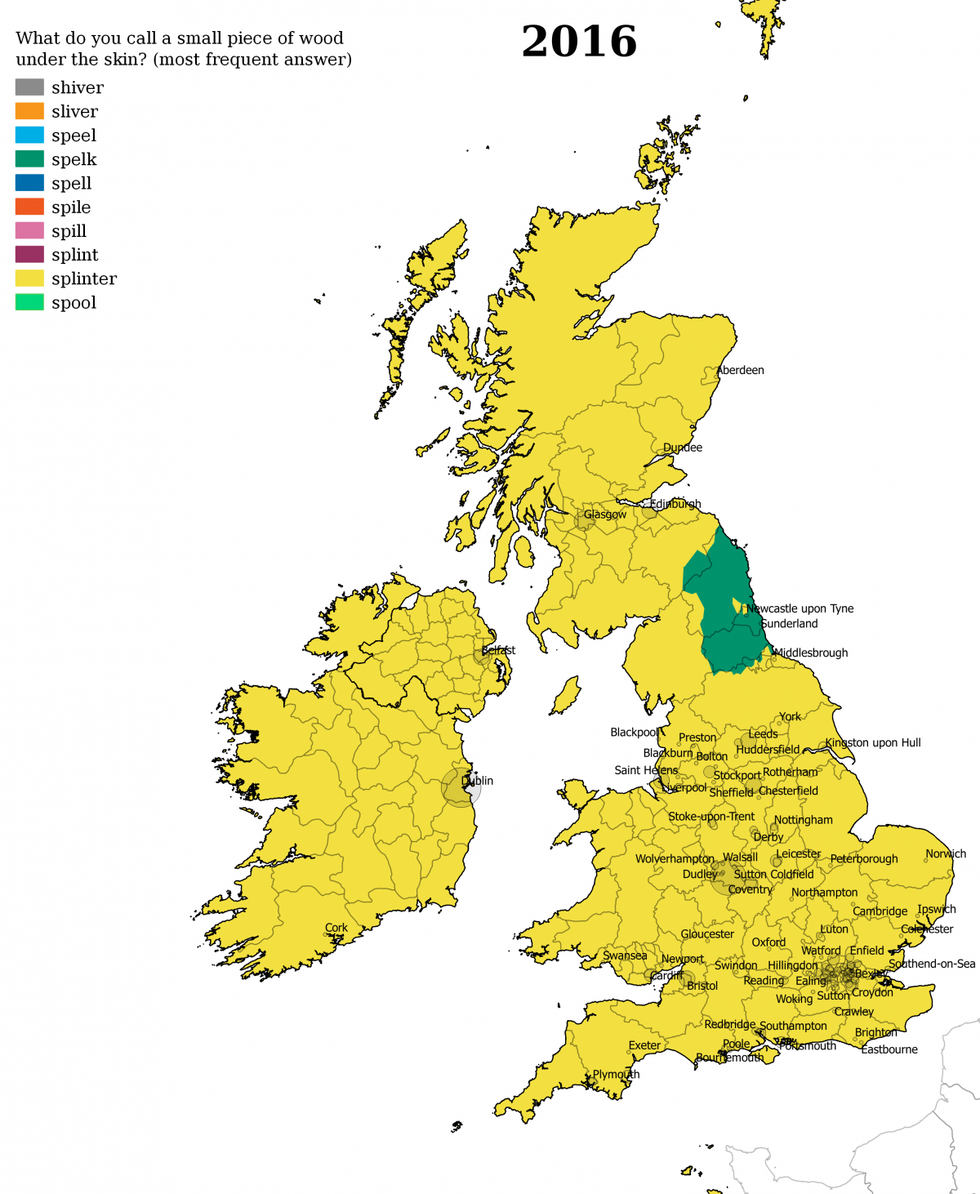
Top 100
The Conversation (0)
